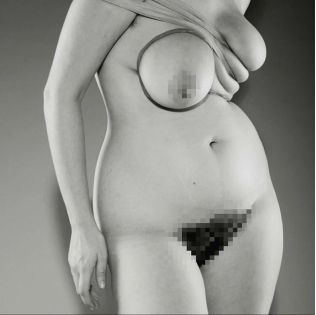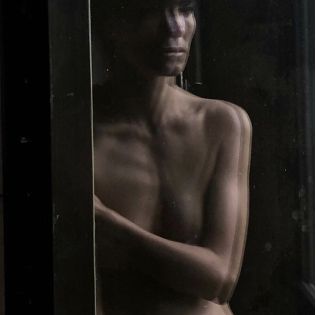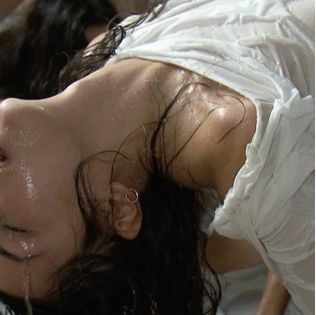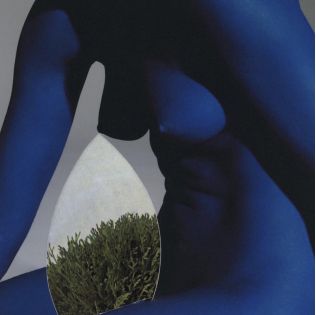The Year Of Sophia Roe
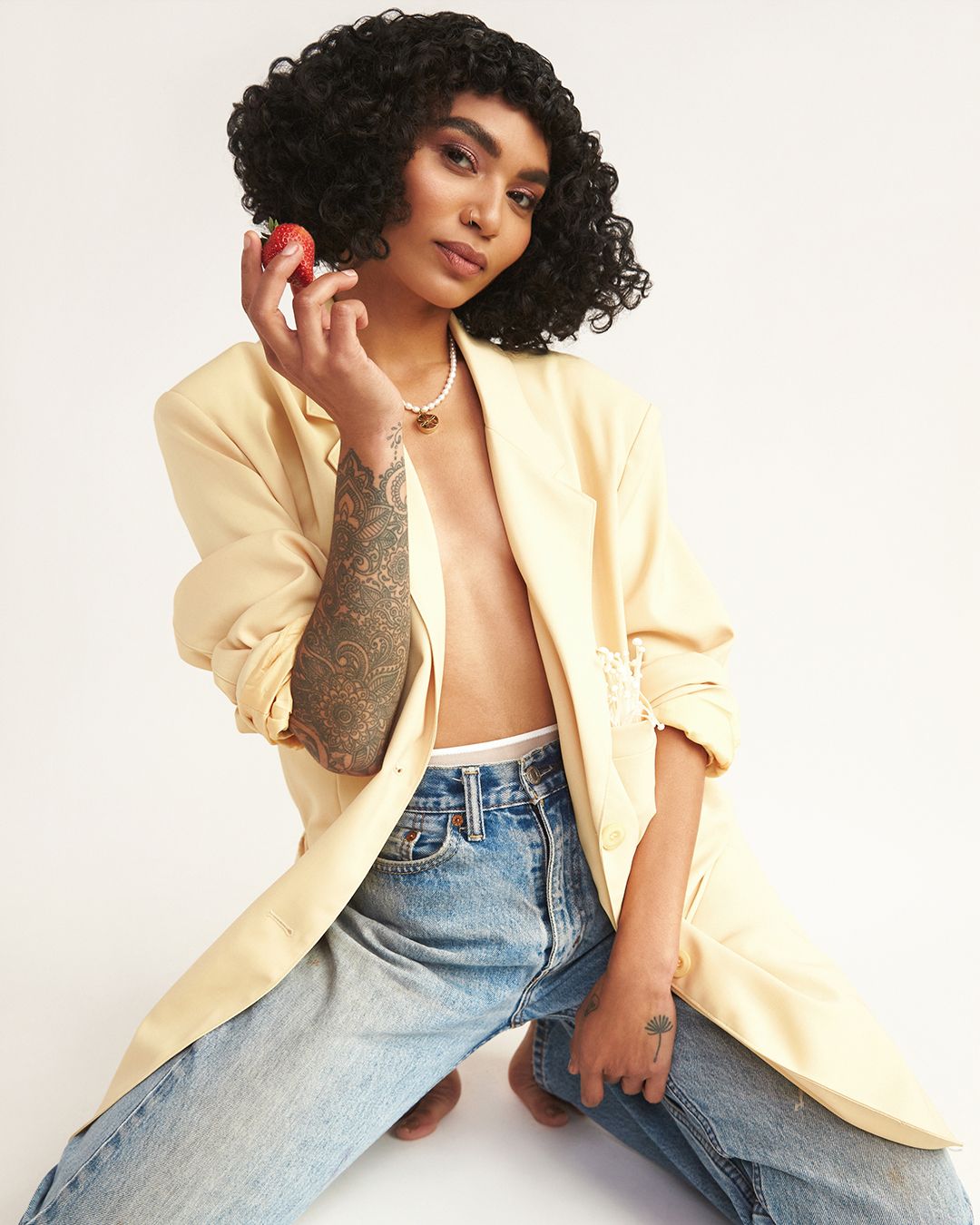
Sophia Roe is a new kind of celebrity chef, one who's redefining what it means to have influence
It’s late in the evening in mid-October when I step out of a movie theatre to a long stream of Whatsapp messages. “What do we think of these?” reads the first, alongside a picture of a giant bloom of Oyster mushrooms. “Perfect!” our Sydney-based creative director responds. “Are there any other varieties?” asks the Los Angeles-based photographer. What continues is an impassioned back and forth across multiple time zones about the aesthetic merits of different varieties of fungi, conducted with the seriousness and intensity of a team of architects laying the foundations of some great structure. Such has been the nature of preparations for Par Femme’s first cover shoot, but we want the very best for our star: the chef, activist, and noted mushroom enthusiast Sophia Roe. By the time the team arrives in studio for the shoot, we have a proverbial smorgasbord on our hands: juicy pomegranates, punnets of strawberries, lashings of fresh flowers, and all the chanterelle, maitake, and enoki mushrooms a girl could ever ask for.
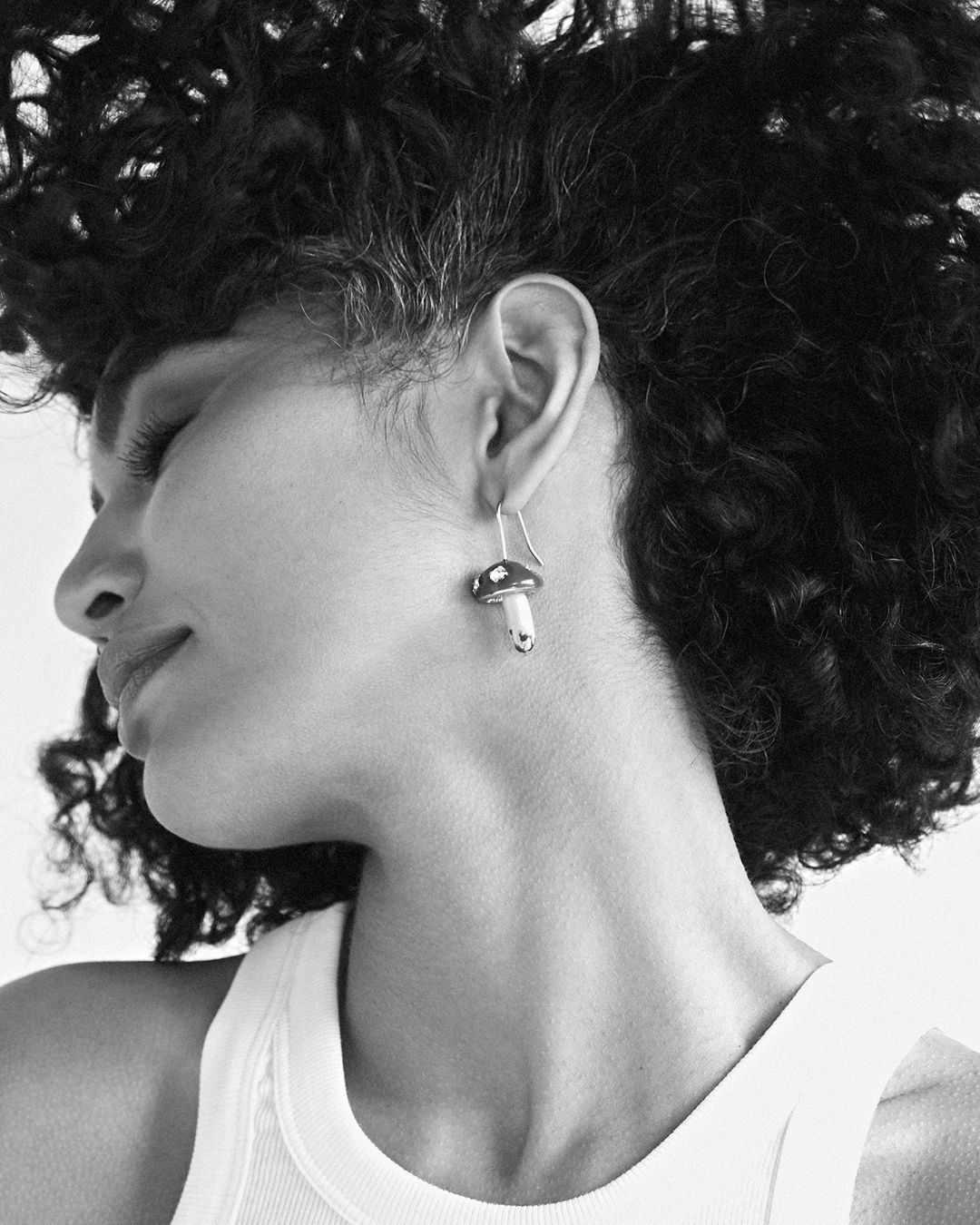
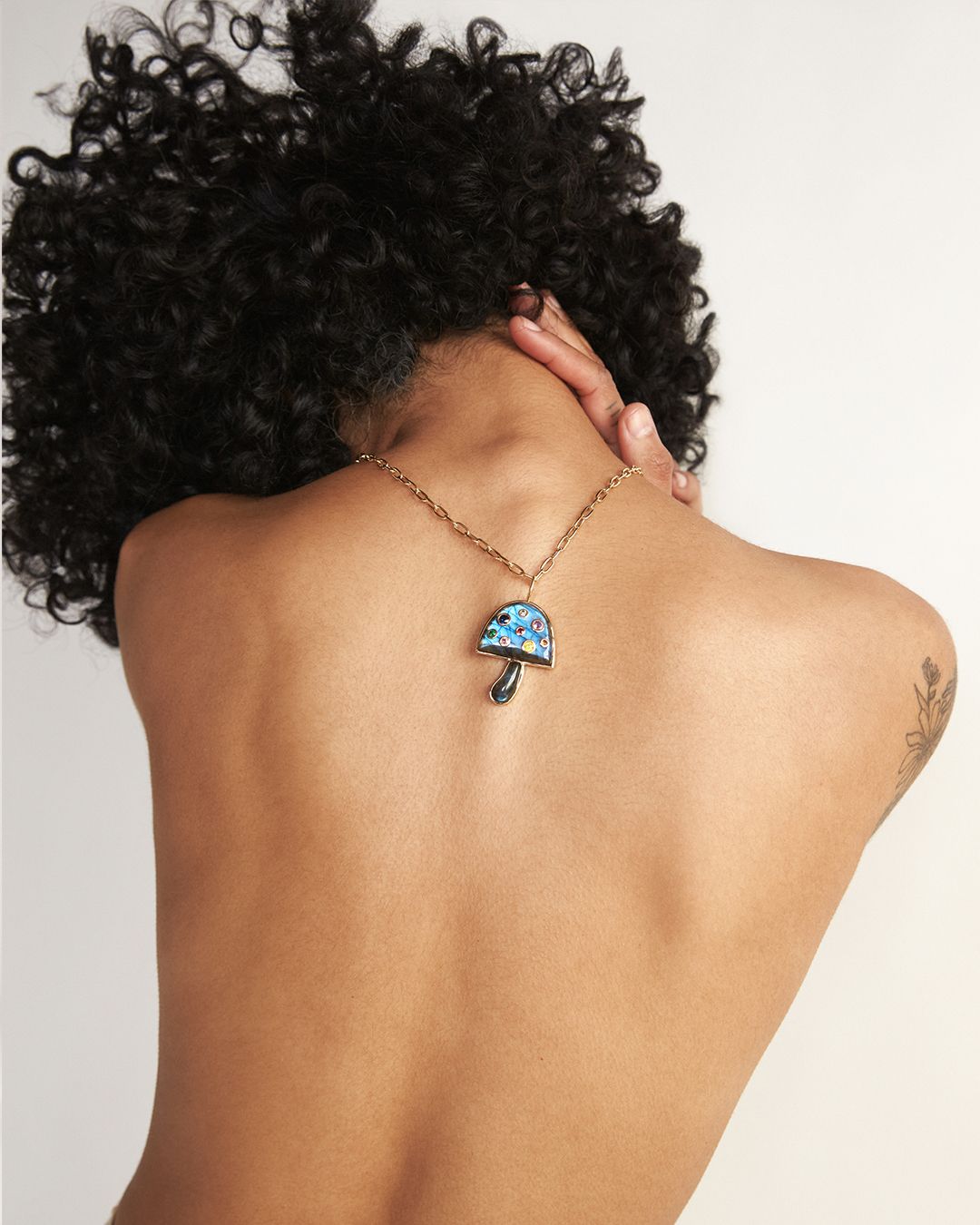
Roe was a natural choice for an issue dedicated to the topic of food and pleasure. She is one of the leading figures in a new vanguard of celebrity chefs: those who mix culinary nous with a political conscience. Her 2020 hit Vice series, Counter Space, took tropes of the traditional cooking show and turned them on their head by integrating investigative journalism with the usual chatty culinary how-tos. The first episode investigates how Hong Kong street food vendors play a key role in the country’s pro-democracy movement, then cuts to Roe cooking fish balls in curry sauce in a glossy test kitchen in Brooklyn. Other episodes explore how economic crisis in Lebanon has changed the country’s cooking habits (recipe: vegan Kibbeh), examine the preservation of Uighur heritage (recipe: lamb kebabs), or investigate Mexico’s ban on sugary snack foods (recipe: a skillet sauté made with only canned vegetables). The first series found a cult following and earned Roe her first Emmy nomination. When we speak, she’s midway through filming the second season, fresh off the back of attending the Met Gala as a guest of Anna Wintour, and halfway through writing her first cookbook. The pandemic was no walk in the park—but Roe’s career has undeniably thrived in the last two years.
“Here’s this girl on the main stage of the Emmys talking about food insecurity and making meals with 100% canned and frozen foods.”
No one is more surprised by this than Roe herself. “I mean, I’ve never been more blindsided,” she says of the Emmy nomination, a fact she was alerted to when she left a doctor’s appointment and encountered a flurry of congratulatory texts. “You’re seeing your name next to these people like Ina Garten and Valerie Bertinelli, and I’m like but no one knows me! I’m not on the Food Network!” Roe is right to point out that the archetypal “celebrity chef” has often fit a certain mould: notably unpolitical and almost always white. “And suddenly, here’s this girl on the main stage of the Emmys talking about food insecurity and making meals with 100% canned and frozen foods. It’s unheard of.” Still, it was a bittersweet achievement. Roe was both the first Black person and first Black woman to be nominated in the Outstanding Culinary Host category (she lost to Garten). “It really felt like, well, how could that be?” she says with a sigh. “I thought to myself, I never want to be the only Black woman nominated for anything ever again.”
Sophia Roe’s Instagram feed—which is where many people first encounter her—is a glittery mecca of eggplants in shiny miso sauce, polenta cakes sprinkled with fresh blackberries, and glazed strawberry compotes infused with rose extract. Roe herself is a force of nature with an impeccable sense of style, cheekbones that could slice your hand on and a fierce intelligence that explodes off the screen, whether she’s discussing the merits of coconut aminos or the need for criminal justice reform. Politics has always been at the core of her work, but it wasn’t until the murder of George Floyd and the subsequent proliferation of the Black Lives Matter movement on social media that she began to get her dues as an activist and educator (though I expect she would bristle against both these monikers). Each morning, for weeks on end throughout mid-2020, Roe would go on Instagram live and talk about racism, conversations that were largely directed at her sudden influx of white followers—she gained 87,000 followers in the month of June alone—many of whom had flocked to her Instagram account after supermodel Gigi Hadid hosted a conversation with Roe on her own channel (Hadid has 71 million followers). Topics spanned from redlining—a discriminatory practice which sees financial services illegally deny loans and insurance to people living in minority communities—to community-led wellness (“True wellness is food, air, water, sunlight, movement, and purpose—tonic teas and $58 smoothies is self-optimisation, not self-care”) to spiritual bypassing (using spiritual jargon to avoid taking accountability for harmful actions or tackling greater social harms).
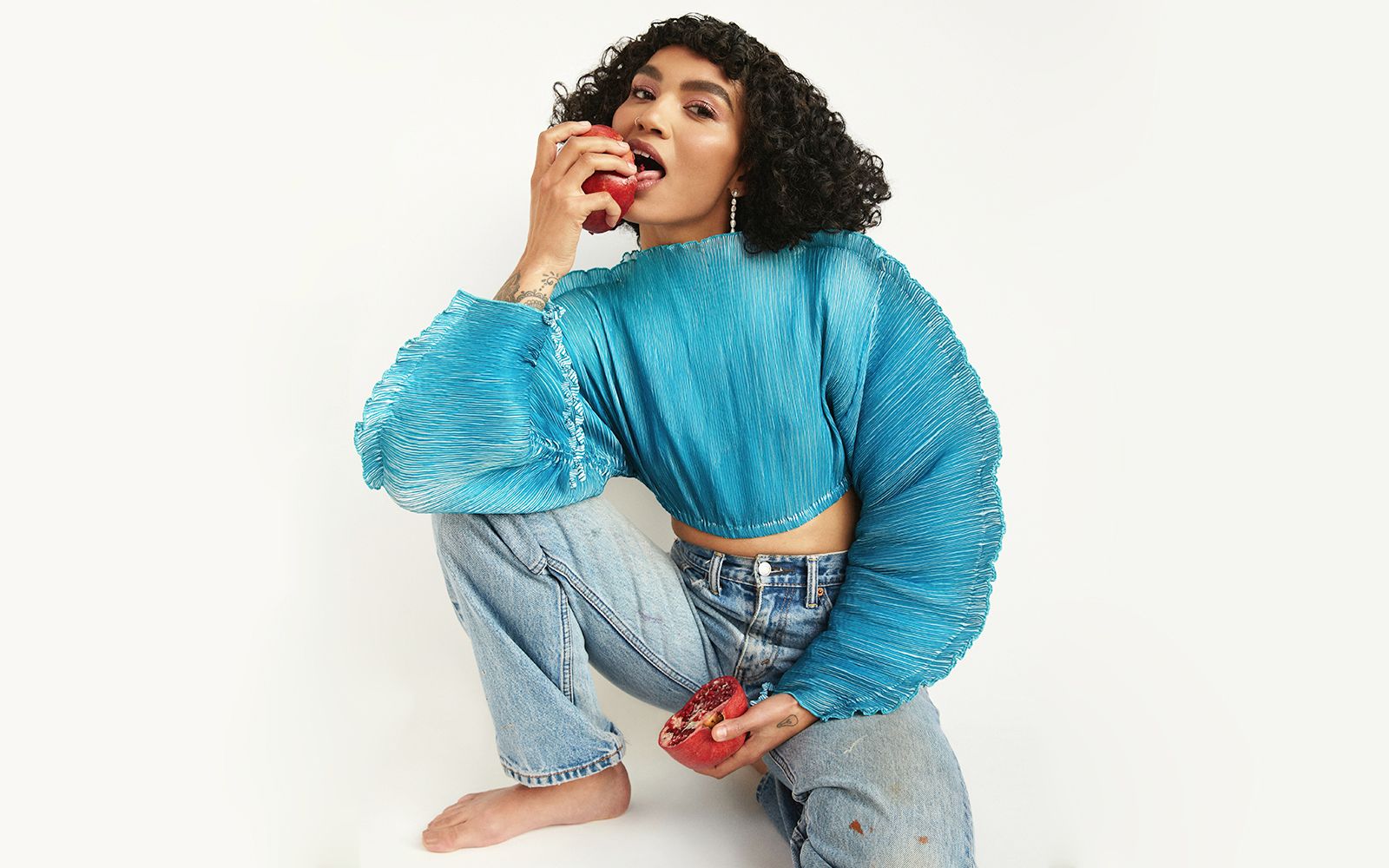
Sometimes these lives would go for 40 minutes, where Roe would patiently answer questions and, on many occasions, cop racist abuse. It must have been emotionally exhausting—a familiar feeling for people of colour but one that was exacerbated during that period of communal trauma, where many white people still seemed unwilling to even acknowledge that systemic racism exists. But for Roe, talking about food and talking about racism are one in the same: it’s a fact that is embedded in the very core of her identity. Roe, who refers to herself as trauma informed, was born to an addict mother and grew up in and out of foster care. “I don’t ever remember a time in my life where I was not on food stamps, government assistance or picking up food at the shelter or the food banks,” she says. “That was my whole childhood. It was a matter of, you know, how many times can you eat macaroni and cheese, or box ramen? Now I think it makes perfect sense for me to be a cook, because we can all be compassionate about hunger—I don’t think anyone is okay with the idea of people going hungry—but it’s a different thing when you’ve experienced it. There are all these names we have for it: food apartheid, food insecurity, but at the end of the day it’s hunger, plain and simple. So for me now, the ultimate gift I can give someone—the ultimate gift I can give myself—is a full belly.”
Roe never planned on going into food. When she began working in a kitchen in 2009 she was guided by a simple, primal instinct: “I felt that the greatest way for me to deal with a traumatic childhood was to learn how to feed myself. I mean, we all need to eat, right?” When she started, “everyone had tattoos, everyone was on the chill side”, and the idea that she would become one of the TV chefs she grew up watching—a Giada De Laurentiis is, a Jamie Oliver—never even registered as a possibility. “I didn’t consider it because I didn’t see anybody that looked or talked like me,” she says. Even now, the idea that she should count herself in their company feels ludicrous. When I ask Roe what it feels like to be a celebrity chef she laughs at the idea—“David Chang is a celebrity, Bobby Flay is a celebrity, Ina Garten is a celebrity, I’m just happy to be here.” But the nature of fame is different now, I argue. There likely will never be an Ina Garten or a Bobby Flay again, culture is now siloed into pockets of the internet, where to a certain audience (TikTokers, YouTubers, Vice obsessives) you’re an A-lister, but to the rest of the world you’re basically unknown.
“The ultimate gift I can give someone—the ultimate gift I can give myself—is a full belly.”
Besides, isn’t being invited to the Met Gala undeniable evidence that you’re capital F-famous? Roe shakes her head. “I think a lot of the reason that I was there was because of Marcus Samuelsson [head chef at Harlem’s culty food spot Red Rooster] and Anna Wintour, who decided they wanted to include chefs in this huge cultural moment. You can’t have a conversation about culture and only talk about fashion—food needs to be at the centre of it. I was included with 9 other chefs and all of us felt like Why the fuck are we here?”
Still, Roe looked quite at home on a red carpet filled with Hollywood royalty and leggy supermodels, channeling Diana Ross in bespoke Halston. And she says it was nice to get to hang out with Gigi Hadid and Cynthia Erivo, friends she made online during the pandemic but hadn’t yet got to meet in real life yet. Even if she doesn’t feel it herself, her presence on the red carpet is an indicator that figures like Roe—influential people whose platform is based on substance, not purely aesthetics—are slowly gaining ground in the cultural zeitgeist.
After my interview with Roe I had a sudden compulsion to re-read one of my favourite books, Audre Lorde’s Zami: A New Spelling of My Name (1982). It often happens during the writing process, this unnameable sense that the answer to a question that I haven’t even articulated yet lies somewhere in my chaotic and dishevelled bookshelf. Zami is the closest that Lorde—one of the most important Black feminist thinkers of the last century—came to writing a memoir, and it is primarily concerned with her childhood in 1940s New York, her sexual awakening as a queer woman, and the ways these experiences intersected to create her identity as a thinker and writer. It’s also—and I hadn’t realised this until reading it again—a love letter to food.
Lorde’s writing on food is rich and evocative in ways that rival even the most esteemed food writers. Before a family holiday, Lorde’s mother packs an extravagant picnic of roast chicken, buttered brown bread, ‘violently yellow’ iced cakes, fuzzy peaches and iced tea. When Lorde visits her father at work, she brings him a packed lunch of spicy meat stew topped with a pat of fresh butter. When she meets and falls in love with an older woman, Afrekete, Lorde lovingly describes rubbing fresh fruit—avocados and pears—over her glistening body and licking it off in the throes of sexual passion.
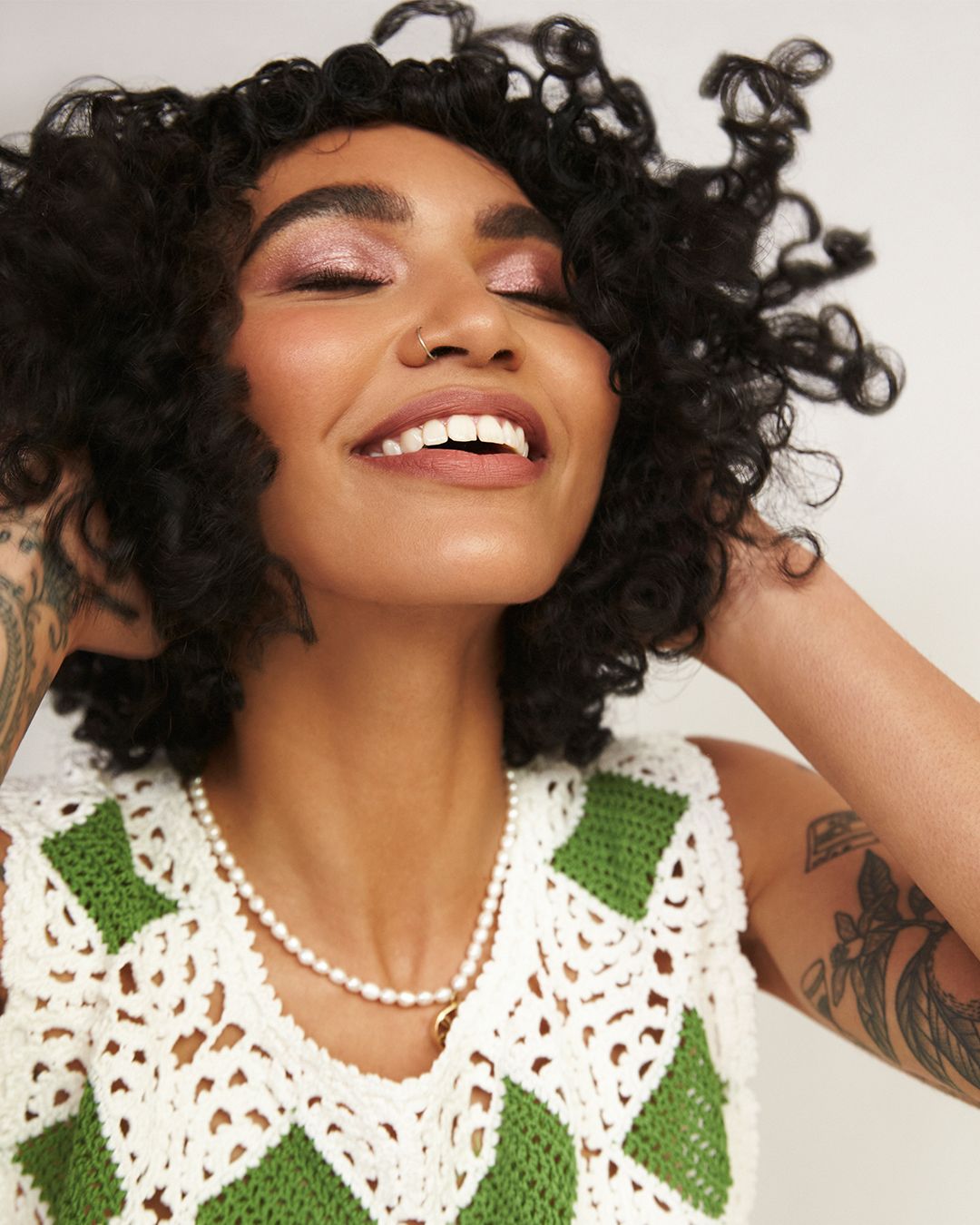
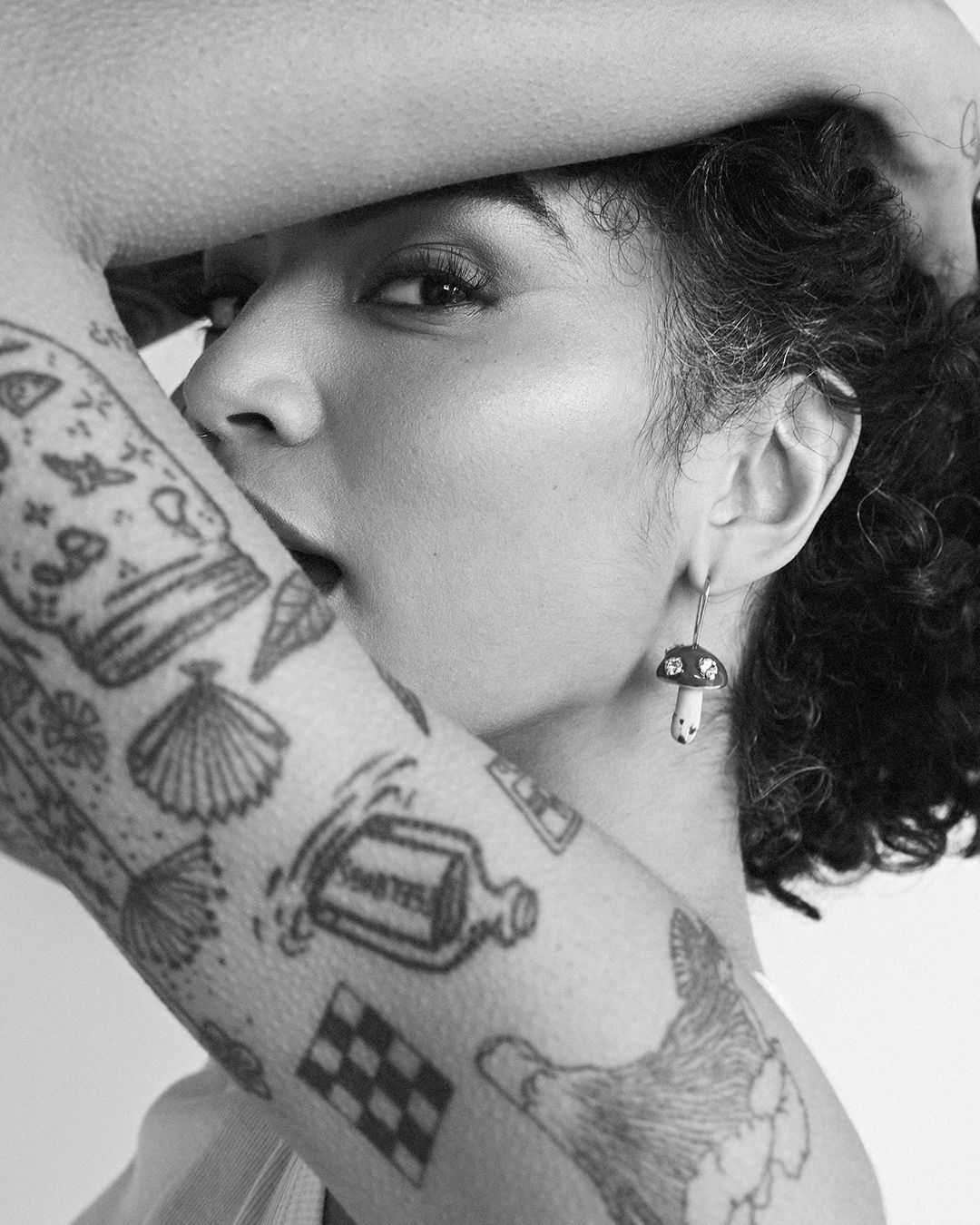
In Zami, food is pleasure but also pain. Lorde’s mother packs the extravagant picnic because it’s still illegal for Black people to eat in railroad dining cars in the ’40s, and she doesn’t want her family to go hungry. Her father eats alone in his office because he fears the vulnerability of eating in public—a testament to the impossible pressures placed on Black men. Lorde’s love affair with Afrekete in the late ’60s is a defiance of cultural taboos at the time, and their experimentation with fruit is a statement that the sexual love of two Black women is as natural and nourishing as the food plucked from trees. In Lorde’s own history, food is either weaponised, as with the chicken foot stew she makes for her white housemates, affirming her otherness, or in abundance, as with scenes at home with her mother, who shows her love through cooking. Or it is in short supply—as Lorde tries to carve her own way in the world she is constantly confronted with poverty, sometimes stealing food from supermarkets to survive. When Lorde, still in high school, tells her mother she wants to run for class president her mother snaps: ‘Get down the rice, girl, and stop talking your foolishness.’ It’s an emotional moment; her mother knows her mostly white school will never elect her and doesn’t want to get her hopes up. The pair cook in silence.
Revisiting this book crystallised in me how Roe is part of a legacy of Black women who have always understood that you can’t talk about food without talking about race. As Lorde wrote in her 1977 essay ‘Poetry Is Not a Luxury’: ‘Our children cannot dream unless they live, they cannot live unless they are nourished, and who else will feed them the real food without which their dreams will be no different from ours?’ Later In 1993 bell hooks continued the conversation, writing about junk food as a temporary balm for the trauma of racism: ‘When we don’t receive racial respect we try to regain feelings of worth through class competition and material possession. Goods function as an equalizer, allowing a person to falsely believe that there is opportunity through consumer choice. We also don’t talk enough about food addiction alone or as a prelude to drug and alcohol addiction. Yet many of us are growing up daily in homes where food is another way in which we comfort ourselves. Think about the proliferation of junk food in Black communities ... I would like to suggest that the feeling those kids are getting when they’re stuffing Big Macs, Pepsi, and barbecue potato chips down their throat is similar to the ecstatic, blissful moment of the narcotics addict.’
But with the pain there is also pleasure: ‘One of the greatest pleasures of my life has been that I have never stopped learning about Good Cooking and Good Food,’ wrote Edna Lewis, the renowned African American celebrity chef and author. It’s this place—the nexus of food as a powerful political tool, as a source of oppression, as a well of endless pleasure—that Sophia Roe lives and thrives in. Food was the source—or at least the embodiment—of much of her childhood trauma. But she has transformed it into the source of creativity, abundance and possibility in her life.
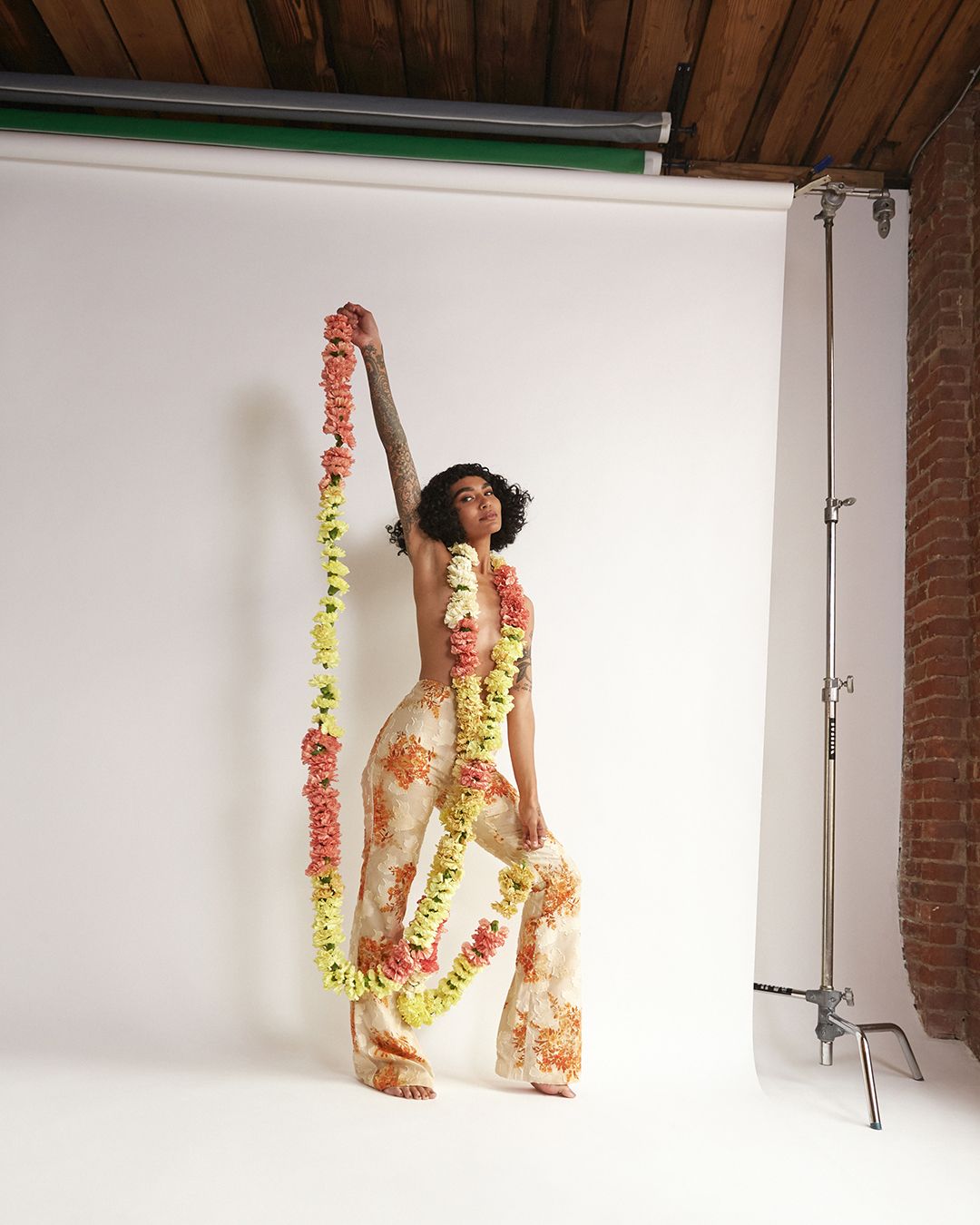
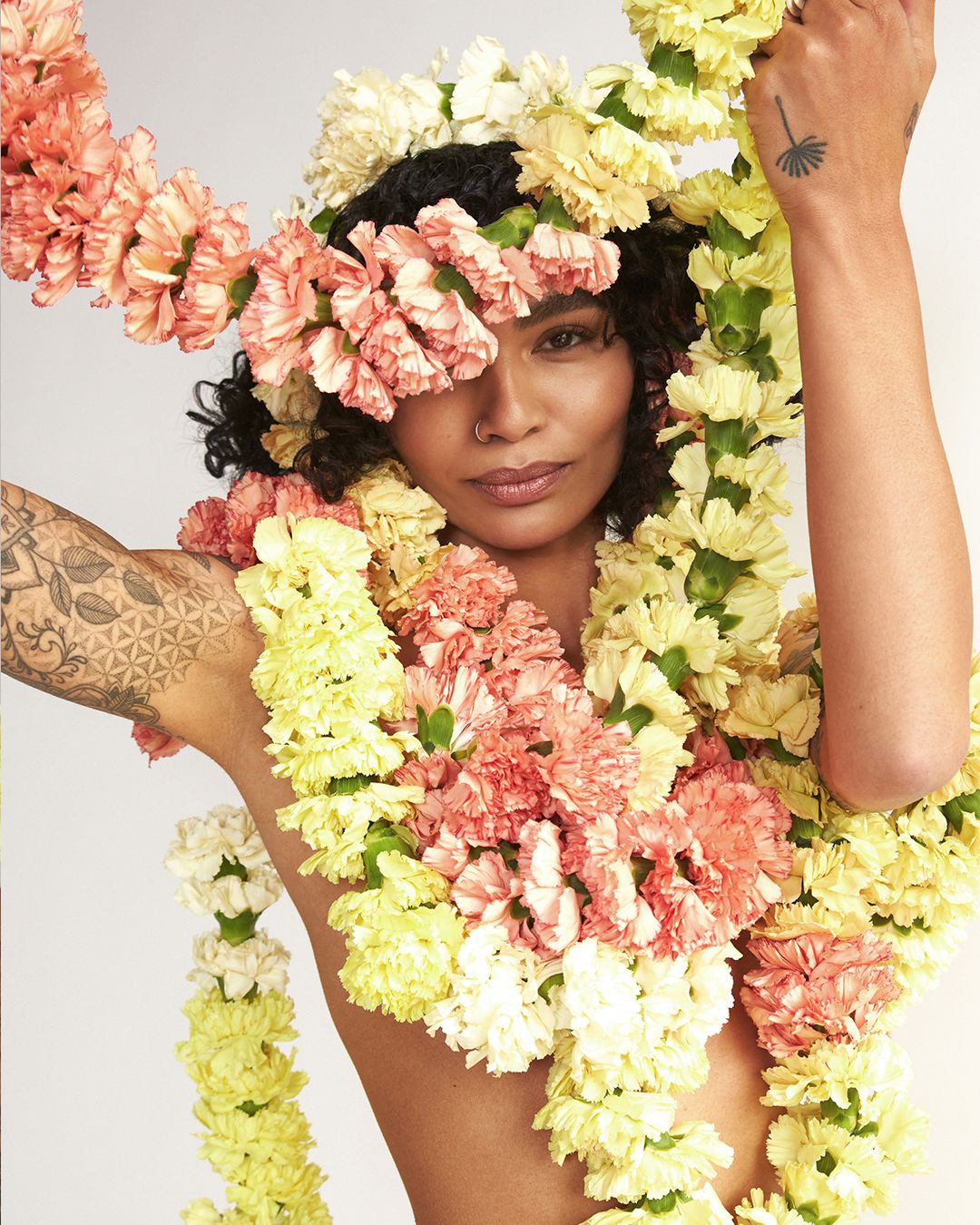
‘The good news is that I still have time, but I really did not have much fun in my life,’ Roe says in one of the most poignant moments of our interview. ‘I spent so much of my time working because I had to. You know, I had no dad, my mom was a substance abuser—no help, nothing. And so it really just felt like if you’re going to be able to pay your rent or eat, you need to obsess over working. I was put in a situation where I didn’t consider following a dream—I didn’t have time to dream! I just had to work a thousand kitchen jobs or whatever to make money. Now is the first time in my life I feel like I have possibilities. I feel like I can take my spiritual shirt off in a way that I’ve never been able to in the past. I can look at work in a way that feels edgy, or educational, or adventurous, or innovative—there’s nuance and imagination in my life in a way there hasn’t been in the past. I’m actually doing a job that makes me happy.’
In this way she is an example of social media influence done correctly. It’s difficult to not feel cynical about the nature of influencer culture, which often seems to feed on some of our basest instincts: bitchy, shallow, greedy. But then someone like Sophia Roe comes along—someone who likely would never have found the same spheres of mainstream influence if she hadn’t earned a following on the internet first—who makes you feel like the pendulum might really be swinging in the right direction. What’s most refreshing is that at her core, Roe doesn’t aspire to win awards or become a bazillionaire or get invited to glitzy red carpet events. Her ambitions are far more profound: to find meaning, to find community, to heal. Who could hope for a better incarnation of celebrity than that?


